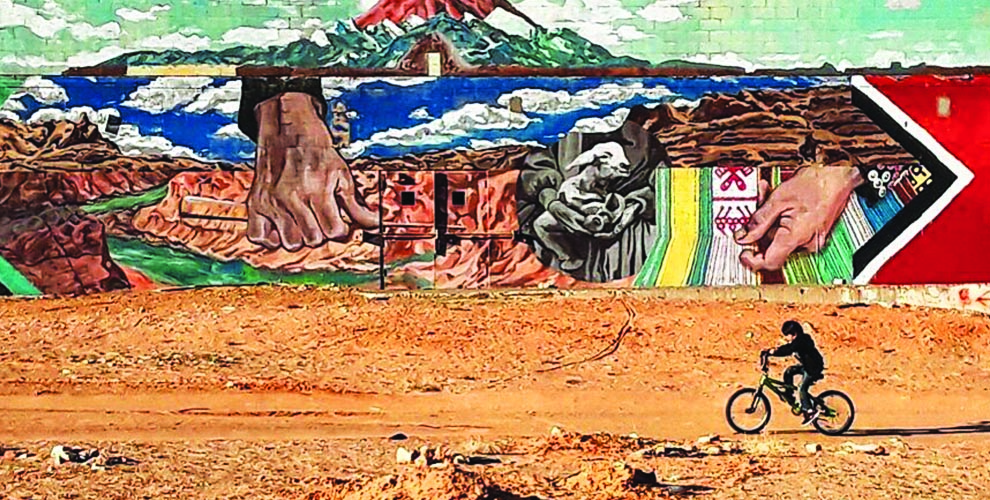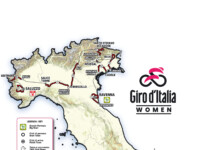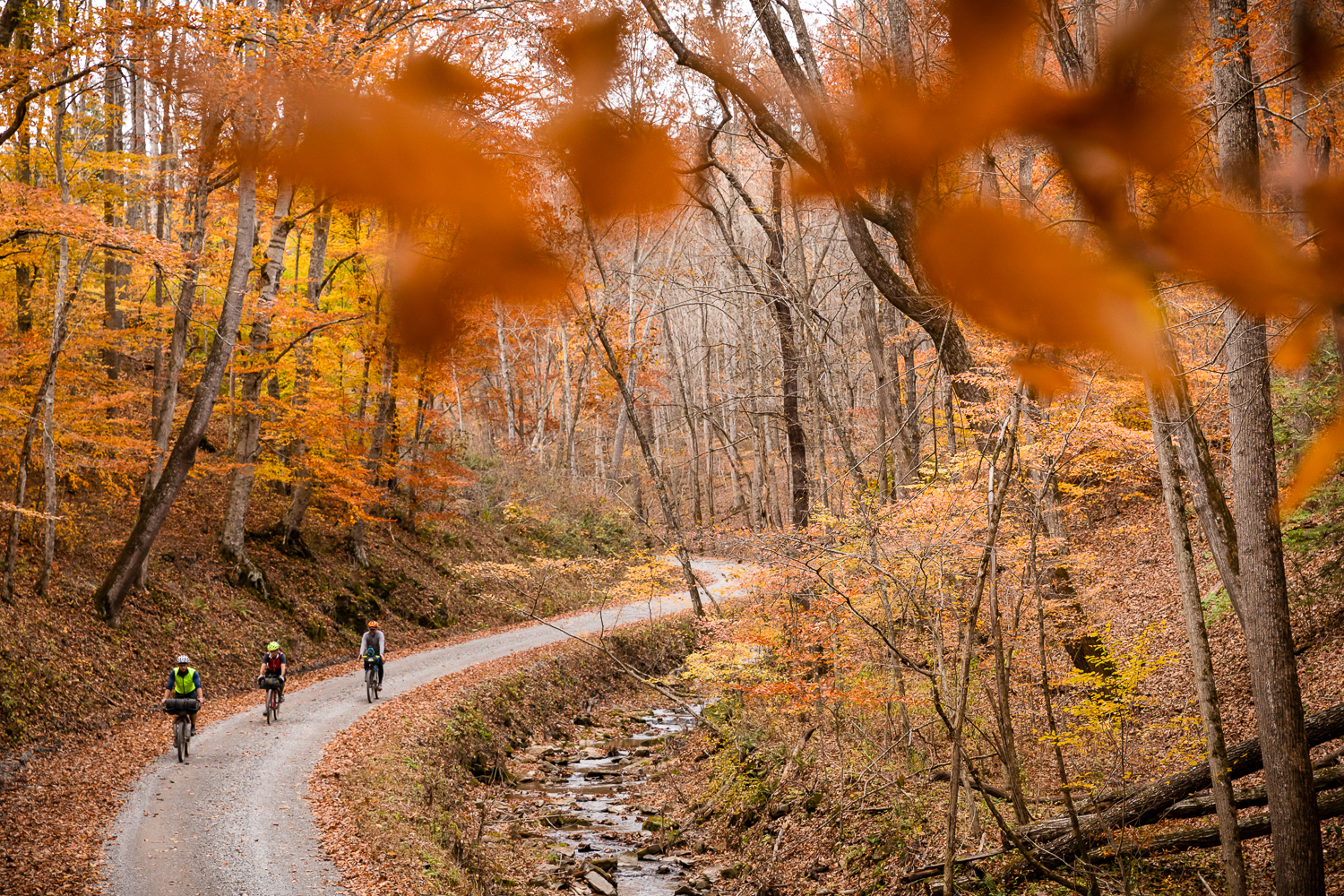Nearly $200,000 in Trail Planning Will Transform Communities in Arizona, California, Nevada, New Mexico, Utah, and West Virginia
BOULDER, Colo., (January 24, 2020) — The International Mountain Bicycling Association (IMBA) is pleased to award its third round of Trail Accelerator grants to eight recipients in six states, putting $91,000 into new trails in communities across the country. Trail Accelerator grants will be matched with local support to put nearly $200,000 into community trail plans. These locations join seven Trail Accelerator grant recipients in Arkansas, Nebraska, Tennessee, and Wisconsin where trail planning is underway.
“At IMBA, we know that nothing transforms a community like close-to-home trails and nothing advances trail projects more quickly than a professional plan. We’re grateful for the support IMBA has received to increase our Trail Accelerator grant funding and look forward to working closely with these eight locations for months and years to come,” said Dave Wiens, IMBA Executive Director. “Nearly every project will benefit National Interscholastic Cycling Association (NICA) teams and youth riding programs, which will lead to happier, healthier and more prosperous communities with more life-long riders.”

IMBA’s Trail Accelerator grant is a competitive grant offering for communities who need extra support to realize their vision of transformational trail systems. A professionally, strategically planned sustainable trail system can serve as a model and as inspiration for an entire mountain biking region. Awardees provide matching funds and receive professional trail planning and consultation services from IMBA Trail Solutions to launch trail development efforts, which can help leverage more interest and investment for community trail projects. Projects must show strong partnerships between local leaders, government entities, land managers, property owners, community groups, and IMBA Local partners.
This third round of Trail Accelerator grants in Arizona, California, New Mexico, Nevada, Utah, and West Virginia range from site-specific bike park plans to city-wide trail systems. Several locations are seeking more beginner-friendly trails to make their trail systems more accessible and complement existing intermediate and advanced trail offerings. See more detail on individual projects below.
“We are so excited about being awarded the IMBA Trail Accelerator grant for Morgantown. We have world-class whitewater and rock climbing here, but our mountain biking trails are mostly technical. We’re excited to use this grant toward building more accessible trails. We plan to engage students, faculty, staff, and community in the project. We want to use this project as one of the catalysts to continue to grow the outdoor economy in West Virginia,” said Greg Corio, Assistant Dean, Strategic Youth Development Initiatives, West Virginia University.
The next round of Trail Accelerator grants will be awarded in fall 2020. Applications will be accepted April 1-May 31, 2020. For interested applicants, IMBA Trail Labs are a great introduction to help get started planning for trails. Nine of the 15 current Trail Accelerator grant recipients have attended an IMBA Trail Lab. The next Trail Lab is April 7-8, 2020, in Bentonville, Arkansas. IMBA will also host two webinars in March and April 2020 to cover the details of Trail Accelerator grants. Webinar attendees can learn more about grant criteria and eligibility on the IMBA grant webpage. Read about the progress of current Trail Accelerator grant recipients on the IMBA blog.
Round three Trail Accelerator grant recipients:
Page, Arizona – Chains Trail Loop: $5,000 grant
The Chains Trail Loop will roll along slickrock terrain on the border of Glen Canyon National Recreation Area, connecting to several miles of existing trails and spectacular scenic overlooks such as Horseshoe Bend, while helping protect the fragile desert landscape. The new trail, along with campgrounds and other recreation-based businesses, will support economic growth and diversification in Page and on the surrounding Navajo Nation. Glen Canyon National Recreation Area, the city of Page, Glen Canyon Conservancy, Navajo YES!, Kane County, and Coconino County have all collaborated on these plans.
Prescott, Arizona – Prescott Flow Trail Development Project: $10,000 grant
With more than 400 miles of trails and 2 million trail visitors per year in Prescott, one may see riders from eight to 80 years old enjoying the trails—like the seven local NICA teams or the Over the Hill Gang trail building volunteers. To address the rapid growth of youth racing and riding, meet the demands of new and future mountain bike riders, and add a trail type not currently available in the area, the Prescott Flow Trail Development Project will add several miles of new gravity trails to the system. Prescott National Forest, the city of Prescott, and Prescott Mountain Bike Alliance are partners on this project.
Escondido, California – Daley Ranch Trail System: $15,000 grant
Daley Ranch borders Escondido city limits with 3,200 acres of open space. The current 20 miles of trail are poorly aligned, and a trail master plan will guide trail realignment, maintenance, and new trails. This will encourage positive trail user experiences, increase access for residents of all abilities, and protect the diverse Daley Ranch habitat. Trailheads are within pedaling distance of four schools and serve five NICA teams. The trail committee includes the city of Escondido, Friends of Daley Ranch, The Escondido Creek Conservancy, Valley Center Trails Association, and San Diego Mountain Biking Association.
Taos, New Mexico – Talpa Traverse Trail System: $8,000 grant
The Talpa Traverse Trail project is an unparalleled opportunity for a diverse, multi-user trail system close to the town of Taos that would benefit the local community through increased access to trails on 3,000 acres of land, with potential for an additional 2,000 acres. The area nestles close to homes, businesses and schools where kids participate in after-school mountain bike programs, and provides a gateway to the Carson National Forest to connect the community to public lands. Partners include Enchanted Circle Trails Association, Taos Mountain Bike Association, Taos Saddle Club, and Carson National Forest.
Ely, Nevada – Garnet Hill Trail System: $10,000 grant
Downtown Ely is the city’s official trailhead, connecting local and visiting riders of all abilities to more than 30 miles of singletrack loops in community parks and state parks. This project will add mountain bike trails in the Garnet Hill Recreation Area on Bureau of Land Management (BLM) land, which is adjacent to Ely and offers a nearly 2,000-vertical-foot descent back to town via Squaw Peak. Ely’s new NICA team, White Pine Composite, will love these longer, technical miles to train. The trail planning committee includes staff from the BLM, Great Basin Trails Alliance, and White Pine County Tourism and Recreation.
Farmington, Utah – The Farm Bike Park: $8,000 grant
The vision for The Farm Bike Park combines 44 acres of city land with 15 acres of connecting Forest Service land along the Wasatch Front, to rival the country’s largest bike parks. It will bring trails close to home in Farmington and serve the 3 million residents within an hour’s drive. A trail master plan would reclaim social trails and design climbing trails to provide rides for beginner and intermediate mountain bikers through short loops, downhill trails, flow trails, and skills features. The city of Farmington, Farmington Trails Committee, and Farmington High Mountain Bike Team are partners on this project.
Berkeley Springs, West Virginia – Cacapon State Park Mountain Bike Trail Plan: $10,000 grant
This project will plan a series of beginner loops on the southern side of Cacapon Resort State Park. The park currently has 18 miles of intermediate and advanced trails, which were used in the inaugural 2019 Cacapon Enduro race, but lacks trails suitable for new riders and for a race course to host the area’s two NICA teams. New trails will dip through white oak and shagbark hickory trees, explore three ridgelines, and use Cacapon Mountain’s 1,500 feet of elevation gain. Cacapon Resort State Park Foundation is working with local mountain bikers and NICA team leaders on this plan.
Morgantown, West Virginia – West Virginia University Sustainable Trails Initiative: $25,000 grant
Within a 20-mile radius of downtown Morgantown, there are more than 23,000 acres of public land with climbing, paddling, cave access, and trail mileage that any town would envy. But Morgantown has just one bike-optimized natural surface trail. This grant will include a partnership with West Virginia University faculty and students to create a master plan and site-specific plans that link this recreation together, prioritizing access to schools and introducing beginner-friendly, bike-optimized trails. The University and the city of Morgantown are partnering to further a recreation-based economy and improve local health.










